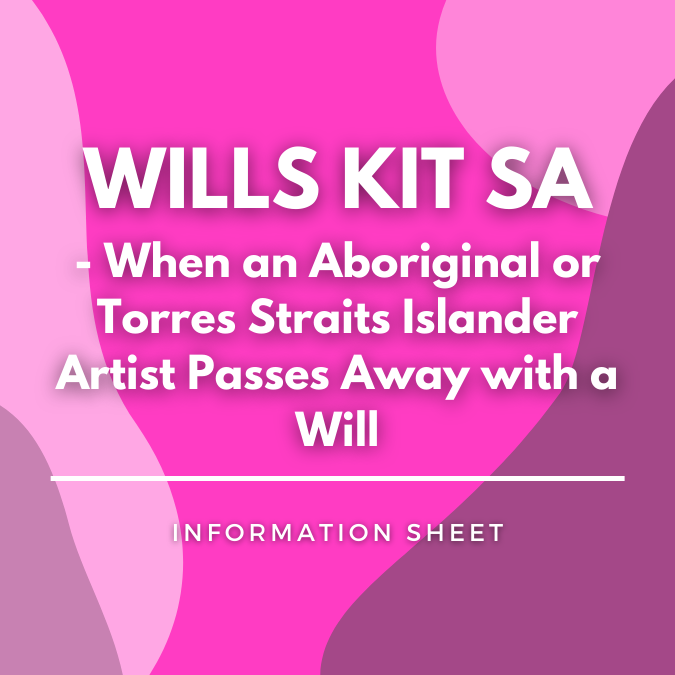Music and Indigenous Cultural & Intellectual Property
1. What is ICIP?
ICIP is a short way of saying Indigenous Cultural and Intellectual Property. ICIP means all aspects of Aboriginal and Torres Strait Islander peoples’ traditional knowledge and cultural expressions. This is also sometime referred to as “cultural heritage”.
ICIP can take many forms. Some of these are knowledge about stories, songs, dance, places or rituals, writing, ceremonies, painting, symbols and language. For more information on ICIP generally, see Arts Law’s Information Sheet on ICIP.
Aboriginal and Torres Strait Islander peoples are the custodians of their traditional knowledge and cultural expressions. Aboriginal and Torres Strait Islander laws and protocols say how knowledge and culture can be shared and used. The laws and protocols may be different for each Community.
The UN Declaration on the Rights of Indigenous peoples says that Indigenous Peoples have the right to maintain, control, protect and develop their cultural heritage, traditional knowledge and traditional cultural expression. This recognises “ICIP rights”. Principles of self-determination and free, prior and informed consent underpin respect for ICIP and ICIP rights.
While there are some Australian laws that can be used to protect ICIP and ICIP rights, ICIP rights are yet not a “right” that Australian law recognises and protects. ICIP rights include the rights of Aboriginal and Torres Strait Islander peoples to:
- Protect traditional knowledge and cultural material. This includes controlling the way that ICIP is shared and used, and by keeping secret and sacred material secret.
- Ensure respect for traditional laws and customary obligations. This is particularly the important when ICIP is used or shared, or when someone makes money from ICIP.
- Be paid for use of ICIP, especially if money is being made from it.
- Be credited and acknowledged as the traditional owners and custodians of the ICIP.
- Prevent insulting, offensive and misleading uses of ICIP.
- Control the documentation or recording of ICIP (including cultural customs and expressions and language).
Respecting ICIP means recognising that Aboriginal or Torres Strait Islander peoples should have control over how ICIP is shared and used. This includes making sure that sharing and use of ICIP follows community laws, systems and protocols.
Arts Law acknowledges the important and foundational work of Dr Terri Janke in advancing recognition of and respect for ICIP in Australia. Her report, Our Culture: Our Future, and subsequent work has been vital in protecting ICIP in Australia.
2. What does recognising and respecting ICIP look like in the context of music?
In the context of music, examples of recognising and respecting ICIP and ICIP rights include:
- If a cultural song is performed at an event, the performers ask for cultural consents and receive those consents before the performance. The performance acknowledges the Traditional Owners and custodians of the song, and the Community receive a financial benefit for its performance.
- Traditional dances and music performed for tourists are limited to those with cultural permission to be performed in that context and for that group.
- Language is not used in song lyrics without cultural consent.
- Ceremonies or traditional songs are only recorded with cultural consents. There is a clear agreement about how the recording can and cannot be used.
3. Does Australian law currently protect ICIP in music?
Australian law currently does not specifically protect ICIP or recognise ICIP rights. However, there are existing laws that may give some protection to ICIP. You can read more in the Arts Law Information Sheet on ICIP.
For music, copyright is an important law that may provide some protection for ICIP. However, that protection is limited. Copyright is not designed to protect ICIP and there are important gaps in the protection available. Some of these gaps are explained below.
4. What does copyright in music protect?
Copyright protects song lyrics, music (the combination of musical sounds like the melody or harmony) and sound recordings. Each has separate protection and may be owned by different people.
Copyright owners have certain rights, including the right to copy and communicate their work to the public. They can prevent other people from doing those things without the copyright owner’s permission.
For lyrics and music to be protected under copyright law, they must be written down or recorded and they must be original. This means that copyright law does not protect:
- The underlying story, idea or information that is put into a musical work.
- A style or type of performance or music e.g. clapping sticks or didgeridoo playing
- Songs or music which have been handed and passed down through many generations but not been recorded or written down.
5. How is copyright in music different to ICIP?
If a cultural song is protected by copyright, copyright law determines who is the owner of that song. The first owner of copyright in music and lyrics will generally be the creator or creators of that work (the composers). Where a song is composed by more than one person, it is jointly owned by those composers. These ownership rules can be changed by other rules such as employment. You can also give away ownership, this is called assignment of copyright).
The rules of copyright ownership are often different to the Aboriginal or Torres Strait Islander community’s view of ‘ownership’ or custodianship of a song. Copyright does not recognise communal rights or communal ownership. If a person wants to seek permission to use a traditional song, copyright says they need to seek permission from the copyright owner. This may be different to the person or persons from who permission should be sought under traditional laws and protocols.
Copyright in music and lyrics generally lasts for 70 years from the death of the author. Copyright in sound recordings generally lasts for 70 years from the time the recording was made or was made public.
ICIP rights do not have an end date.
Individual authors or composers also have moral rights. These include the right to be credited as the author or composer and the right to make sure their work is not treated in a way that is derogatory or damaging to their reputation.
Moral rights do not recognise a Community’s right to be recognised for the song or the cultural knowledge or a Community’s right to make sure the song and knowledge are respected.
Copyright law also provides some protection for the rights of performers. These include certain rights to prevent unauthorised recording of a performance, but those rights are limited. Performer’s rights do not recognise communal ownership of ICIP.
6. Can copyright or other laws protect ICIP in music?
A copyright owner may be asked to give their permission to use their work. This is often called a licence. A copyright owner can use their copyright rights to protect ICIP. They can refuse consent or stop, people using or copying their work, where cultural permissions has not been given.
Other laws, such as contract law, can also be used to protect the use of ICIP. If you are signing a contract, you can decide and agree about how ICIP will be used and that it is treated in a way that is respectful of traditional laws and protocols.
7. What about secret songs?
Some songs are secret or sacred. The law of the Aboriginal or Torres Strait Islander Community may say that they can only be heard by certain people within a community, such as women, men, or initiated community members.
The law of confidential information may provide some protection for secret or sacred songs if the song is secret (not public knowledge), and the person who received the song knew that it was secret. If that person uses the song outside the permission they have been given to the detriment of the community, this may be a misuse of confidential information. It is a good idea to have a non-community member (other party) receiving any secret songs or other secret information sign a confidentiality or non-disclosure agreement.
8. Where can I read more about copyright and music?
Copyright law and music can be complicated. You can read more in the Arts Law Information Sheets on Copyright in music and lyrics, Moral Rights and Performer’s rights in music.
© Arts Law Centre of Australia 2011, last reviewed 2024
Disclaimer
The information in this information sheet is general. It does not constitute, and should be not relied on as, legal advice. The Arts Law Centre of Australia (Arts Law) recommends seeking advice from a qualified lawyer on the legal issues affecting you before acting on any legal matter.
While Arts Law tries to ensure that the content of this information sheet is accurate, adequate or complete, it does not represent or warrant its accuracy, adequacy or completeness. Arts Law is not responsible for any loss suffered as a result of or in relation to the use of this information sheet. To the extent permitted by law, Arts Law excludes any liability, including any liability for negligence, for any loss, including indirect or consequential damages arising from or in relation to the use of this information sheet.
© Arts Law Centre of Australia
You may photocopy this information sheet for a non-profit purpose, provided you copy all of it, and you do not alter it in any way. Check you have the most recent version by contacting us on (02) 9356 2566 or tollfree outside Sydney on 1800 221 457.
The Arts Law Centre of Australia has been assisted by the Commonwealth Government through the Australia Council, its arts funding and advisory body.




